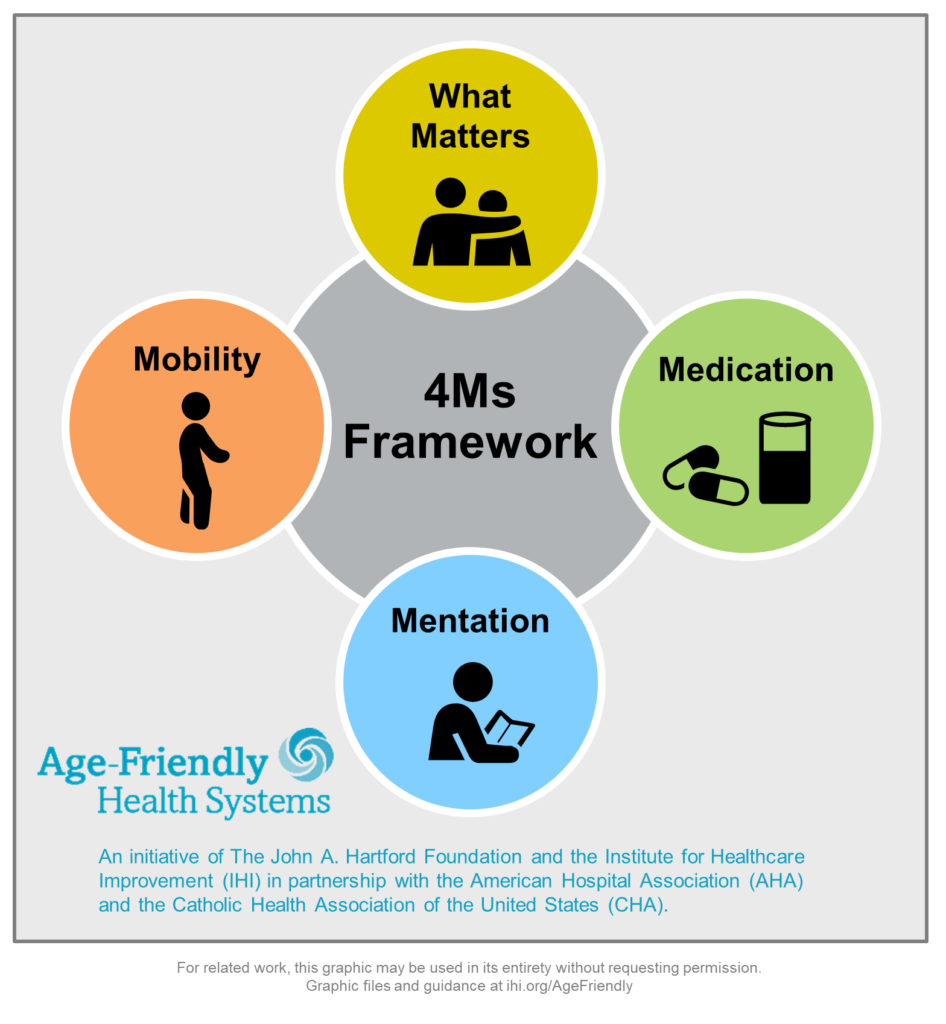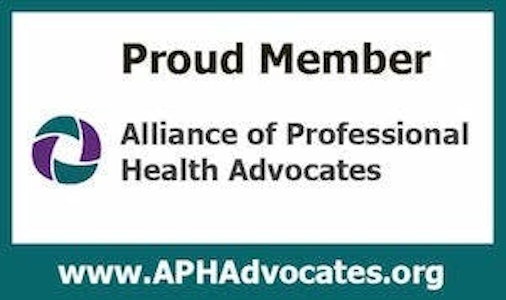As we age, our healthcare needs become increasingly important. Unfortunately, the healthcare system has not always been designed to provide the best possible care for the aging population. However, in recent years, there has been a growing movement towards aging-friendly healthcare. One such initiative is the Aging Friendly Initiative 4 Ms. You may be wondering what this initiative is all about, how it got started, and what it means for seniors and their families. In this blog post, we will explore the answers to these questions and more.
As life expectancy continues to increase, the aging population becomes more significant. According to the World Health Organization (WHO), the global population of people over 60 years will reach 2 billion by 2050. With this growing population comes the need for healthcare services that cater to their specific needs. In response to this, the Aging Friendly Initiative 4 Ms was established. We will also look at what families need to know to ensure their aging loved ones receive the best healthcare possible.

By Drazen Adobe Stock Photos
According to data from the US census Bureau, the number of elderly Americans is on the rise. Estimates suggest that by 2030, there will be about 72 million older persons, comprising over 20% of the US population. With aging comes a higher incidence of chronic diseases such as hypertension, heart disease, and diabetes. The impact of healthcare on our seniors is significant. Improved healthcare allows seniors to live more active and healthy lives, reducing the risk of hospitalization and dependence on family and caregivers. To stay up to date on getting the best care for your aging loved ones, consider joining us weekly for our email newsletter “Senior Saturday.” Get all the weekly happenings and access to our posts, videos, live discussions, and more. We would love to have to join us and assist you in getting the best care possible for you or an aging loved one.
What is the Aging Friendly Initiative 4 Ms?
The Aging Friendly Initiative 4 Ms is a framework designed to improve healthcare for seniors. The 4 Ms stand for What Matters, Medication, Mentation, and Mobility. The initiative was conceived by geriatrician Dr. Terry Fulmer, who recognized the need for a more personalized approach to healthcare for the aging population. This initiative began in 2015 within the Journal of the American Geriatrics Society and has since gained recognition and acceptance globally. “Failing to Focus on Healthy Aging: A Frailty of Our Discipline?
The Aging Friendly Initiative 4 Ms is a framework vs. a program aimed at improving the healthcare of our aging population. The 4 Ms represents four critical elements essential in the care of older adults. These include “What Matters,” “Medication,” “Mentation,” and “Mobility.”
It began to come to light in The Age-Friendly Health Systems movement, started in 2017 by The John A. Hartford Foundation and the Institute for Healthcare Improvement in partnership with the American Hospital Association and Catholic Health Association, follows the 4Ms framework (What Matters, Medication, Mentation, and Mobility) to better meet the needs of older adults by providing age-friendly care.

These four components represent a comprehensive approach to enhancing healthcare for seniors. The initiative was launched in collaboration with the Institute for Healthcare Improvement (IHI) and gives healthcare providers the tools they need to take care of their aging patients in a more specialized and effective way.
The goal of this initiative is to ensure that healthcare providers understand the unique needs of older adults and are equipped to provide appropriate care. By incorporating the 4 Ms in their practice, clinicians can personalize care, improve health outcomes, and reduce hospitalizations. As clinicians we may have our own ideas of what we want our clients and patients to do to live a long and healthy life. But what does our client/patient want? We need to pay more attention to that. It is not about what we think is best, it is all about what is important to them!
– Respect and support for seniors’ choices, independence, and autonomy
– Communication that is clear, effective, and easy to understand
– Continuity of care across settings and care providers
– A focus on the individual needs and preferences of each patient
– Creation of a positive physical and social environment that promotes a sense of well-being
The First M: What Matter’s Most:
What Matters Most: As we age, our priorities may shift, and healthcare providers must pay attention to what matters most to their patients. This includes their unique goals, values, and preferences. What Matters Most, aims to address the importance of understanding the priorities, goals, and preferences of the patient.
It invites the patient to participate more actively in their care, ensuring that their voices are heard. By understanding what matters most to the patient, healthcare professionals can deliver personalized healthcare, which reflects the patient’s wishes. We need to take into consideration any religious, ethnic, or other lifestyle choices that may affect their healthcare goals.
It’s crucial for clinicians to understand what matters most to their patients to ensure that their treatments are aligned with their values. We need to meet the patient/client where they are at. If we tell them to eat more carrots and they hate carrots, what is the likelihood that person is going to eat more carrots? Of course, that is a simplified example and kind of silly, but it shows how we need to work with you and consider your choices.
We use this initiative in practice. Sometimes what we find out is very simple or significant when the patient is allowed to express just what is most important to them. For example, there was a patient in the hospital that had chronic lung disease and would be anxious when he couldn’t breathe. The anxiety caused his breathing to get worse. The patient had this illness for a long time and has been taught how to control it for just as long.

When asked, “What matters most to you about managing your illness today, what would that be?” He replied “With all the education I have had on my illness no one has spoken to me about what good meditation recordings or a free app for my phone that has breathing meditations that could help me with my anxiety and my breathing. A friend mentioned that it might be helpful. Could someone look into that for me?” His needs were addressed, and the Respiratory Therapist had an answer and a few apps to choose from. If we don’t ask the right questions, we won’t get the best answers!
What is Age-Friendly Healthcare?
Age-friendly healthcare is an approach to healthcare that recognizes the unique needs of the aging population. It is a concept that takes into account the physical, social, and emotional changes that occur as we age. Age-friendly healthcare prioritizes person-centered care, where the focus is on the individual patient and their unique needs. In the resource section we have included some of the pioneer healthcare systems that choose to be recognized as “age friendly.” We also have a link to look up any system across the U.S. to see if the one you use meets the criteria for “age friendly.”
Access to healthcare for the aging population is often a challenge. According to the National Council on Aging (NCOA), around 80% of older adults have at least one chronic condition, while 68% have at least two. These older adults require continual access to healthcare services, which can become problematic. It is vital that families ensure that their aging loved ones have access to healthcare services and that providers include the 4 Ms in their practice to provide personalized care.
What is the Impact of Healthcare on Our Seniors?
Access to quality healthcare is essential to the well-being of seniors. Unfortunately, many seniors face barriers to accessing healthcare, such as lack of transportation or financial resources. According to the National Council on Aging, 1 in 3 seniors over the age of 65 falls each year, and falls are the leading cause of fatal and non-fatal injuries among seniors. Access to preventive care and medication management can go a long way towards reducing the risk of falls and other health issues in the aging population. By incorporating the 4Ms during the patient interview important healthcare challenges can be identified.
Incorporating the 4 Ms in healthcare practice can have a significant impact on our seniors. Research shows that personalized care achieves better healthcare outcomes, improved function, and reduces the risk of hospitalization. In addition, older adults who receive appropriate care have higher satisfaction with their healthcare experience.
The 4Ms serve as a guideline for clinicians to address the complexity of treating the aging population. What does it mean to be an age-friendly healthcare organization? It means prioritizing the full spectrum of care and treating the senior as a whole person, not just treating the ailment. The 4Ms allow clinicians to create a patient-centered experience and tailor treatment to the individual.

What Do Families Need to Know?
What do families need to know in order to ensure their aging loved one gets the best care possible? It’s important to start with open communication with healthcare providers and have a comprehensive understanding of the patient’s medical history. Seniors need to be involved in their care as much as possible; it can be helpful to write down any questions they may have or bring a loved one to their appointments. Families need to be aware of the costs of care and consider long-term planning.
If you have an aging loved one, it is important to be proactive in their healthcare. Make sure they have access to regular medical check-ups and medication management. Encourage them to stay active and engaged, both physically and socially. You should also be aware of the Aging Friendly Initiative 4 Ms and discuss it with your loved one’s healthcare provider.
Conclusion:
The Aging Friendly Initiative 4Ms provides healthcare providers with the tools to give specialized care to our aging population. This initiative provides a comprehensive way of treating seniors, taking into account individual values, mobility, and medications. Improved healthcare for aging Americans reduces the risk of hospitalization and dependence on family and caregivers. Families can advocate for their loved ones by being involved in their care and planning for healthcare costs. Everyone can benefit from understanding the 4Ms and what it means to be age-friendly, improving healthcare for our seniors, one patient at a time.
By working together, clinicians, families, and healthcare providers can provide our seniors with the best possible healthcare experience.
Thank you for stopping by and spending a few minutes with us. We hope we have inspired you to look at healthy aging across the continuum of your healthcare journey. As nurse advocates, we are ready to come alongside you with your family and be your guide for a happy and healthy journey through your golden years. Learn more about Your Nurse Advocate Consulting Free Resources.
Take care,
Pam and Linda
Your Nurse Advocates
“Compassionate Care for Aging Adults, Peace of Mind for the Adult Children.”
Resources:
To stay on top of “all things” Senior, consider joining us for our weekly newsletter “Senior Saturday.” Here you will have access to the latest blog posts, Tuesday tips live discussion, our YouTube videos, guest speakers, online courses, and so much more along with all the weekly happenings and our resource section updated weekly. You can get access HERE.
https://www.ihi.org/Engage/Initiatives/Age-Friendly-Health-Systems/Pages/Background.aspx
(Friendly aging facilities and systems) The five Age-Friendly Health Systems Pioneers are: Anne Arundel Medical Center (Headquarters: Annapolis, MD) Ascension (Headquarters: St. Louis, MO) Kaiser Permanente (Headquarters: Oakland, CA) Providence St. Joseph Health (Headquarters: Renton, WA) Trinity Health (Headquarters: Livonia, MI)
https://www.ihi.org/Engage/Initiatives/Age-Friendly-Health-Systems/Pages/recognized-systems.aspx Complete listing of healthcare systems that are recognized as “age friendly.”
https://agsjournals.onlinelibrary.wiley.com/doi/10.1111/jgs.15644






